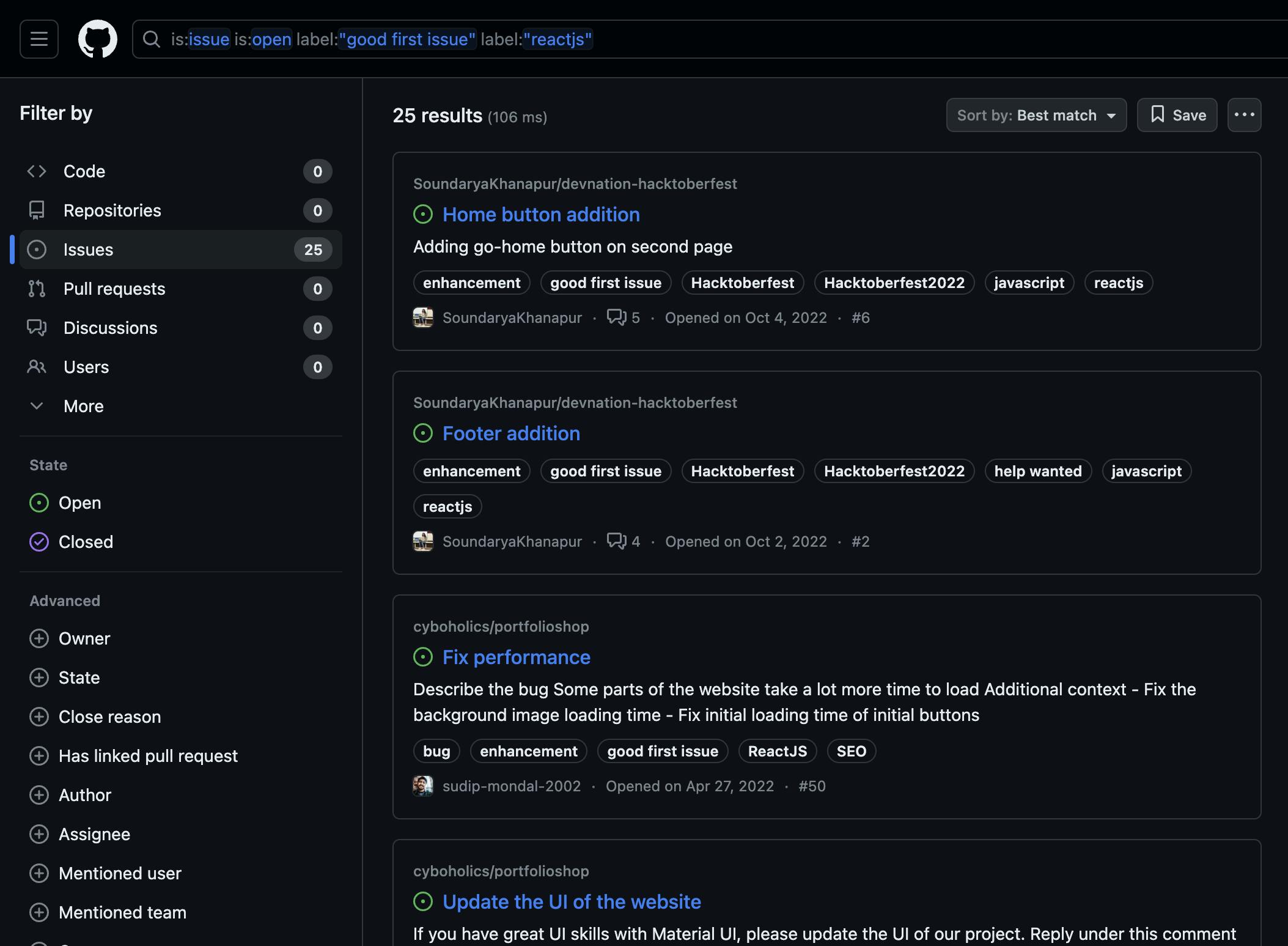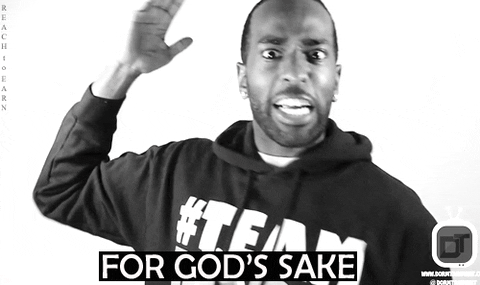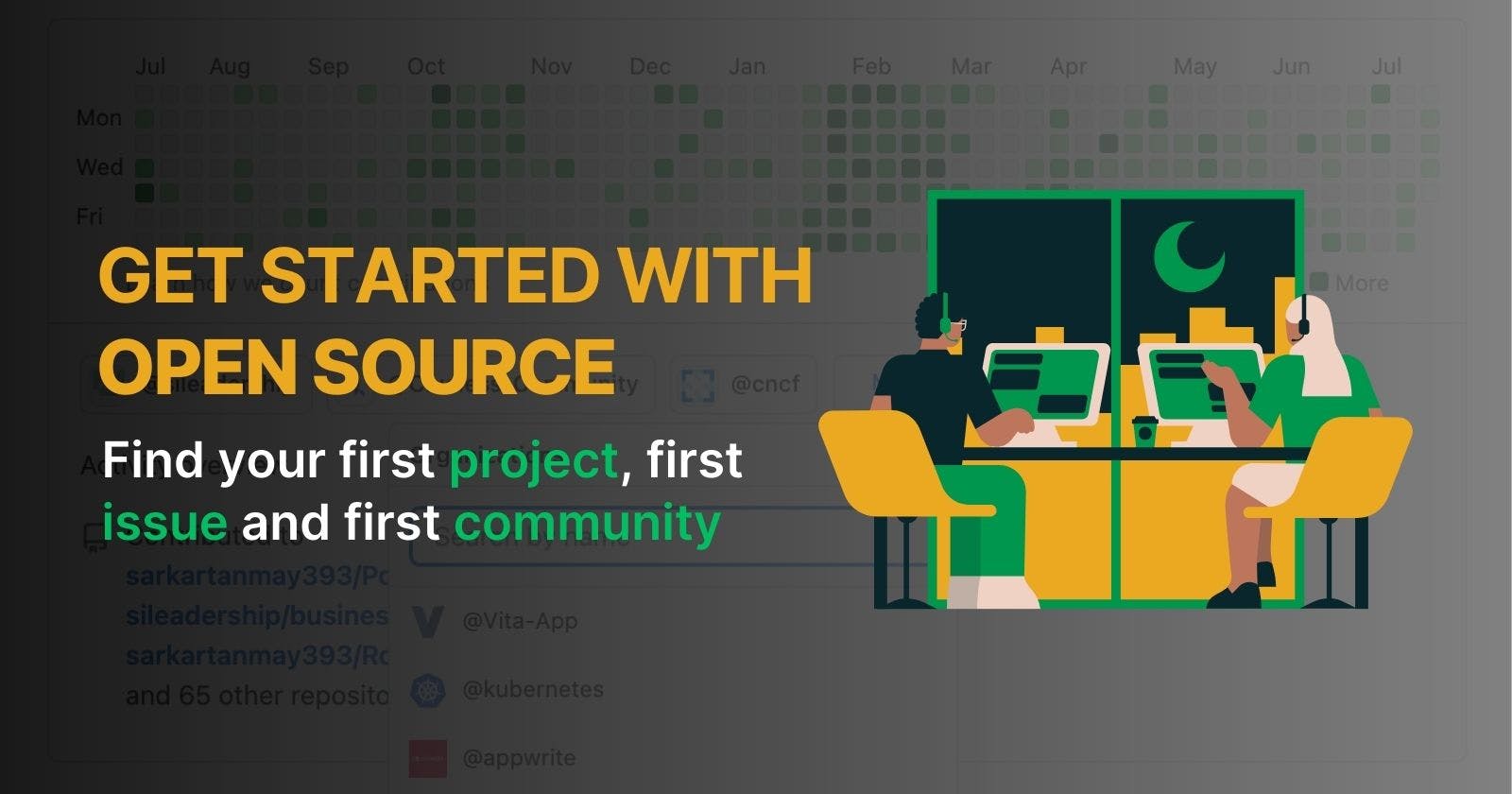The Ultimate Guide to Finding Your First Open Source Project and Issue as a Beginner
Introduction 🙋🏻♂️
Hey Devs, What's up? Today I'm back with another blog and it's mainly for beginners in Open Source. You might be trying to get involved in Open Source but you don't have any heads-up. For that reason, you should read it to the end.
Open source is a great way to learn new skills, meet new people, give back to the community, and definitely, the journey will be fruitful for you. As you're new to open source, you might be wondering where to start. One of the best ways to get involved is to find and fix a good first issue.
A good first issue is a bug or feature request that is relatively easy to fix and doesn't require in-depth prior knowledge of the project. These issues are a great way to get your train rolling in open source and make a meaningful contribution.
I'll be mentioning some best places where you can find your first open-source issue in your comfortable tech stack.
Before you move forward
I want to talk about who should read this article and find an issue for themself. Obviously, who has practical knowledge of any tech stack (e.g. web development) and knows that he/she can contribute to other similar projects. After satisfying this requirement and only then you should search for projects.

As I'm currently into web development with MERN, TypeScript, Next.js, etc. So I can find a web project built with any of these technologies and I'm good to go with contributing to that project.
Some might be:
Let's find an issue for you 🙌
Here are some of the best ways:
GitHub: GitHub is the most popular website for hosting open-source projects. You can find good first issues by searching for the
good-first-issuelabel.In the GitHub search bar, enter the following query:
is:issue is:open label:"good first issue" label:"your-tech-stack"Replace
your-tech-stackwith the name of your specific tech stack or programming language. For example, if you are working with JavaScript, you would uselabel:"javascript"
Good First Issue: This is a website that curates good first issues from popular open-source projects. They have a search engine that lets you filter issues by language, framework, and other criteria. They are totally elegant looking.
Up for Grabs: Up for Grabs is also a website but it lists open-source projects that are looking for contributors. They have a section for good first issues, as well as a forum where you can ask questions and get help from other contributors.
Here: https://up-for-grabs.net/First Timers Only: Last but not least, First Timers Only is a website that helps new contributors find open-source projects that are welcoming to first-timers. They have a list of projects with good first issues, as well as tutorials and resources to help you get started. You should head over to their website sometime.
Once you've found a good first issue, you can start working on it. The first step is to make sure that you understand the issue. Read the issue description carefully and ask questions if you're not sure what it means.
Once you understand the issue, you can start working on a fix. If you're not sure how to fix the issue, you can ask for help from the project maintainers or other contributors.
Once you've fixed the issue, you can submit a pull request. A pull request is a way of submitting your changes to the project's codebase.
The project maintainers will review your pull request and either approve it or reject it. If your pull request is approved, your changes will be merged into the project's codebase.

If you're new to open source, I encourage you to find a good first issue and start contributing today!
Conclusion ⏰
In this blog, we discussed how to find and fix your first open-source issue. We covered the following topics:
Who should read this article and find an issue for themselves.
What is a tech stack?
How to find good first issues on GitHub, Good First Issue, and Up for Grabs.
How to submit a pull request and never wait for getting assigned in issues.
I hope this blog has inspired you to get involved in open source! If you have any questions, please feel free to comment or reach out to me on Twitter.
Here are some additional tips for you:
Start small. Don't try to fix a big issue on your first try. Start with something small and easy to understand.
Be patient. It may take some time for your pull request to be approved. Don't get discouraged if it doesn't happen right away.
Be helpful. If you see someone else struggling with an issue, offer to help them.
Have fun! Open source is a great way to learn new things and meet new people. So enjoy the process!

With that have a great day, sayonara 👋🏼
Follow me on @sarkartanmay393 🐦
Direct mail me at sarkartanmay393@gmail.com 📧
